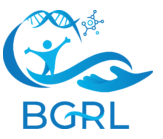MSc Level Courses
Oceans & Human Health is an elective course offered in several MSc programs at the Faculty of Bioscience Engineering (UGent). Delivered in a blended learning format, the course combines traditional lectures, thematic discussion sessions, and individual project assignments. It focuses on providing insights, fundamental science, and practical applications to elucidate and understand the interactions between marine ecosystems and human health. By incorporating multi-stakeholder perspectives on key marine topics, the course aims to build interdisciplinary competences among students.
Aquaculture Environmental Impact is a core course of the MSc Aquaculture. The course focuses on the positive and negative effects of both onshore and offshore marine aquaculture on their respective environments. The course covers recent insights and innovations in aquaculture applications, such as recirculated automated systems and multi-species/multi-trophic aquaculture. It includes traditional lectures, environmental assessments of case studies, and a group-developed case study to provide practical learning experiences.
Applied Marine Ecology is a core course of the MSc Bioscience Engineering: Environmental Technology. The course focusses on describing and illustrating the fundamental and applied concepts of marine processes and ecosystems. In contrast with classic marine ecology, the modern human relation with the marine environment is incorporated in this course. Students learn how to convert theoretical marine processes and concepts into quantitative estimations. As such, students calculate for a few different problems how anthropogenic interactions influence marine ecosystems. It includes theory lectures, field excursions and practical classes.
Environmental Risk Assessment is a core course of the MSc Bioscience Engineering: Environmental Technology. The course addresses fundamental and applied concepts of environmental risk assessment. The lab takes up the molecular (eco-) toxicology chapters within the course. This includes the application of novel approach methodologies (NAM), including computational toxicology and adverse outcome pathways (AOP).
Lifelong Learning
The Blue Growth Lab is dedicated to lifelong learning. It coordinates and participates in numerous courses, workshops and summer schools that align with its research themes. A brief overview of its past and current participations:
- The Blue Science & Technology summer school introduces key concepts of the blue sustainable economy. It is organized bi-annually by Marine@UGent at its home base Ostend Science Park.
- SETAC short courses on epigenomics in environmental risk assessment during the yearly SETAC Europe conferences (as a training course within the EU project EPIBOOST).
- BelTox courses on risk assessment, where Prof. Jana Asselman has lectured the fundamentals of environmental effect assessment.
- UGain course Environment Coordinator, where the lab takes responsibility for the environmental risk assessment lectures.
